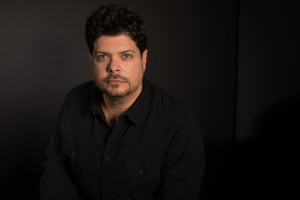I suppose it can be easy to forget that when you do it as a profession, playing music is a business and needs to be approached as such. You are the company and your artistry is the product. With that being the case, there are some things to remember when running your “business.”
I graduated high school in 1991 and was awarded a vocal scholarship to Murray State University in Murray, KY. Prior to all of this, I had been playing and singing in local gospel music bands. (I’ll write on THAT sometime later.) Musicians and performers are wired a bit differently than others. I consider myself an introverted extrovert….or the other way around. I can never remember which is which. Being one of those puts an even bigger twist on that dynamic. I learned early on that I love being on stage. I love performing and making people happy with whatever it is I do on stage. I love applause. I love the attention…..but I loathe the attention.
Okay, back to the point. Since I had been performing and love music so much, this music scholarship made sense. The fall semester of 1991 began and off I go to college to get a music degree! I was almost immediately unhappy. Long story short, I left after two semesters and took a gig in South Carolina touring with a semi-pro gospel act. I’ve spent pretty much all my adult life playing music and done pretty well. However, it took me a long time to realize that I am a business. Once I did, there was another problem. I have no business training. Looking back on it all, I regretted not getting some kind of business education.
This just meant that I’ve had to learn “on the fly.” I’m actually pretty good at listening to those who can teach me a thing or two about something, and I’ve done that quite a bit. This brings me to a subject that I feel pretty strongly about. Money. Particularly how it relates to my “business.”
Many probably think, “It’s music, just have fun.” Well, you’re absolutely right. However, when you’re in the pro ranks, it’s equally as important to run your business intelligently. One of the parts I don’t really enjoy dealing with is negotiating compensation for my “product.” When you do this, you have to think about the time involved with the job. You have to think about the work to be done on that job. You have to think about the prep work involved, as well. All of these items need to be reviewed together when you are negotiating price.
The details about what a musician needs to do a job are as different as anything. What’s a good amount for one person might not be good at all for the next person. Sometimes I end up on jobs where each player is on a completely different pay scale. Each player has a responsibility to work out the details of each job before the first note is played. Read that previous statement again, it’s important. Here’s why…
Once the details have been settled upon and it’s time to play, there’s no room for even one person having a bad attitude due to feeling like they’re not being compensated well. If you’ve agreed to do a job for less just to show the person hiring you how you play, then be settled on that. If you’ve negotiated a price and somehow find out that another player is getting more, let it go. You had a shot. Maybe that player is taking care of something else regarding that job. Maybe that other player has been there longer and has a higher scale thanks to that. Chalk it up to experience and work on it for the next time.
Once you’ve moved on to the actual playing part of the job, you can’t let any of that affect you. At that point, you need to be literally giving 110% to the music. The “business part” is done and it’s time to focus on the “fun part.” You have to remember that every single person on that stage or in that studio is a potential future client. You give less than everything during your performance because you feel like you didn’t get paid enough and those potential future clients see it. They feel it. They WILL remember that.
So, I want to encourage you to think about how you are a business and how you can successfully negotiate the proper compensation for your product before the first note is ever played. Once that’s done, you can truly enjoy the job at hand and make great music with other super talented players.

